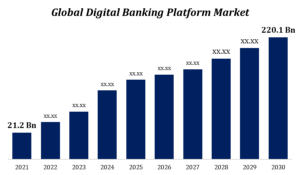How Big Data is Transforming Personal Finance Management
How Big Data is Transforming Personal Finance Management
In the modern world, where information flows seamlessly and technology evolves at breakneck speed, big data has become a transformative force across various industries. Personal finance management is no exception. The advent of big data technologies has revolutionized how individuals manage their finances, offering unprecedented insights, automation, and customization. This blog explores how big data is reshaping personal finance management, the benefits it brings, and the future implications for individuals and financial services.
1. Understanding Big Data in Personal Finance
Big data refers to the vast volume of data generated from various sources, including transactions, social media, mobile apps, and more. In personal finance, big data encompasses the extensive amount of financial information available, from spending habits and investment portfolios to credit scores and market trends. By analyzing this data, financial technology (fintech) companies and financial advisors can offer more personalized, efficient, and proactive financial management solutions.
2. Enhanced Personalization
One of the most significant ways big data is transforming personal finance management is through enhanced personalization. Traditional financial advice often follows a one-size-fits-all approach, but big data allows for more tailored solutions.
a. Customized Financial Plans
By analyzing an individual’s spending patterns, income, investment history, and financial goals, big data can help create highly customized financial plans. For instance, budgeting apps can offer personalized recommendations on saving strategies, expense tracking, and investment opportunities based on real-time data analysis.
b. Targeted Investment Advice
Big data analytics enable financial advisors to provide investment advice tailored to an individual’s risk tolerance, financial goals, and market conditions. Advanced algorithms can analyze vast amounts of financial data to identify optimal investment opportunities and strategies, improving investment outcomes for clients.
3. Proactive Financial Management
Big data’s impact on proactive financial management is profound. By leveraging predictive analytics, individuals and financial institutions can anticipate future financial needs and challenges, leading to more informed decision-making.
a. Predictive Budgeting
Predictive analytics can forecast future spending patterns and income fluctuations, allowing individuals to create more accurate and dynamic budgets. This helps in anticipating expenses, managing cash flow, and planning for irregular financial events such as major purchases or emergencies.
b. Early Warning Systems
Big data can also serve as an early warning system for financial issues. For example, banks and credit card companies use big data to monitor transactions for signs of fraud or unusual activity. Similarly, individuals can receive alerts about potential financial issues, such as overspending or declining credit scores, allowing them to take corrective actions before problems escalate.
4. Improved Financial Literacy
Big data is making financial literacy more accessible and engaging. With the wealth of data available, fintech companies are developing tools and platforms that provide educational resources and insights tailored to individual needs.
a. Interactive Financial Dashboards
Modern financial apps and platforms offer interactive dashboards that visualize spending, savings, and investment data in an easily digestible format. These tools help users understand their financial situation better and make more informed decisions.
b. Personalized Financial Education
Big data enables the creation of personalized financial education programs. By analyzing an individual’s financial behavior and knowledge gaps, fintech platforms can offer targeted educational content, tutorials, and tips to improve financial literacy.
5. Enhanced Security and Fraud Detection
Security is a critical concern in personal finance management, and big data plays a crucial role in enhancing it. Advanced analytics can detect and prevent fraudulent activities by analyzing patterns and anomalies in transaction data.
a. Real-Time Fraud Detection
Financial institutions use big data analytics to monitor transactions in real time, identifying and flagging suspicious activities. This proactive approach helps prevent fraud before it impacts the customer.
b. Improved Risk Assessment
Big data allows for more accurate risk assessment by analyzing a broader range of factors, including credit history, transaction patterns, and market conditions. This leads to better risk management and more secure financial transactions.
6. The Future of Big Data in Personal Finance
The role of big data in personal finance management is likely to expand further as technology continues to advance. Future developments may include:
a. AI-Driven Financial Advisors
Artificial intelligence (AI) will increasingly integrate with big data to provide even more sophisticated financial advice and automation. AI-driven financial advisors will offer real-time insights and recommendations, adapting to changing financial conditions and personal goals.
b. Greater Integration with IoT
The Internet of Things (IoT) will enable greater integration of big data with personal finance management. Wearable devices and smart home systems will collect data that can be used to provide more accurate and personalized financial insights.
c. Enhanced Privacy and Security Measures
As the volume of financial data grows, so will the need for robust privacy and security measures. Future advancements in big data will focus on enhancing data protection, ensuring that personal financial information remains secure and confidential.
Conclusion
Big data is undeniably transforming personal finance management, offering enhanced personalization, proactive management, improved financial literacy, and robust security. As technology continues to evolve, the integration of big data into personal finance will become even more sophisticated, providing individuals with powerful tools to manage their finances effectively and make informed decisions. Embracing these advancements will enable individuals to take control of their financial futures and navigate the complexities of modern finance with confidence.




































